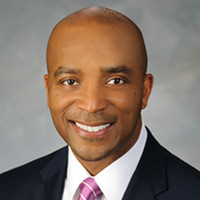BRB Risk Jobs Board — NBI Conflicts Manager (Alston & Bird)
Posted onI’m quite pleased to highlight another job posting from my friend Rodney Miller, Director of Business Information Governance at Alston & Bird. (Always nice to see repeat participants taking advantage of this resource.) He reports a new opening at the firm: “New Business Intake Manager” —
- “The Atlanta office of Alston & Bird is seeking a New Business Intake Manger (NBI Manager) to oversee the firm’s new business intake function on a global basis.”
- “This position is eligible for remote flexibility. Details will be discussed during the interview process.”
Key Responsibilities Include:
- The NBI manager will oversee the New Business Intake team and set the strategic direction for the firm’s new business intake function.
- The NBI Manager will also oversee the implementation of standardized new business intake procedures across offices and liaise with partnership and firm leadership on client intake needs and issues, with escalation to Loss Prevention as needed.
- Individual will maintain expertise in new business intake best practices and advise firm leadership on areas for improvement.
- Serve as Business Lead for firm projects involving new business intake.
- Manage and oversee the day-to-day operations of the NBI Department.
- Develop training materials and ensure the professional development of Department staff.
Skills Needed to be Successful Include:
- Prior new business intake experience utilizing automated intake workflow systems in a law firm environment required.
- Additional skill sets such as prior supervisory experience; excellent written communication skills and the ability to draft and execute complex communications including policies and procedures, and instructional documents.
- Strong knowledge of ethical, legal and risk management rules and requirements governing conflicts of interest and conflicts resolution process required.
For additional detail:
- You can see the specific job posting here
- And read more about professional life at Alston & Bird on their excellent careers page, where I learned that Alston has continued is streak, ranked by Fortune as one of America’s ‘100 Best Companies to Work For now for 23 consecutive years.
A few more things…
Rodney holds special honor as the first person to sign up for a BRB job listing. We were catching up on risk generally and his philosophy specifically, when the idea for this now successful experiment came up. At the time, I asked him a few questions relating to his firms work environment and thought I’d re-share the highlights:

Rodney says that professional development is a core part of working on the risk team at Alston & Bird:
“With our firm’s commitment to being a great place to work, we also want to make sure that our staff members are motivated and set up for success. Each risk team member has their own professional development plan. They have aspirations and things for reach for, and a strong appreciation of the importance of what they do, what they bring to the table, and how to grow, present and create opportunities for themselves.”
A few years ago, Rodney introduced a training program covering conflicts searches, analysis and reporting, as well as presentation and communication skills:
“Each analyst has the opportunity to develop his or her presentation skills in front of an audience — a real confidence booster which translates into more confident conversations with our lawyers… Our conflicts analysts have a stronger appreciation for what our lawyers are looking for, and are highly motivated and focused on delivering exactly what they need.”
And it’s just nice to see how this firm recognizes the importance of the conflicts department, as well as their commitment to excellence:
“I’m proud of the way we’ve professionalized and raised the profile of the conflicts department within the firm. It’s not just a group of folks providing your report of conflicts, it’s so much more involved than that. Each member of the team understands that they are very important spokes in the wheel, tied to new business intake, outside counsel guidelines, and all the restrictions that come into play. All of this is exciting to them, and to me. In the end, it comes down to trust. Our conflicts review committee can trust that every conflicts analyst on the team has a foundational understanding of conflicts searching and how it impacts the firm’s business.”
Does this sound like a good fit for you or someone you know?
If so, get in touch with Alston & Bird directly, or pass this on! (And tell them BRB sent you.)












